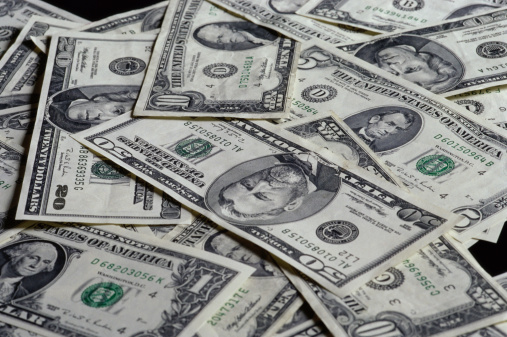
When is a stronger U.S. dollar not a good thing? When it causes companies to sell fewer products overseas. That’s one of the big concerns at the moment among American CEOs, many of whom are worried about what the dollar’s strength against currencies like the euro and the yen mean for US exports–and corporate profits.
They have legitimate reason to worry. Each of the five major dips in U.S. corporate profitability since 1970 have occurred following reduced sales after periods of relative dollar strength. The Fed has recently expressed concerns about whether the dollar’s strength could hold back the US recovery, which has been lackluster to begin with. Wages are still growing at only around 2 %, not enough to push up consumer spending, which is the major driver of our economy. If US exports also begin to suffer, it could be difficult for the economy to sustain the 3% a year growth figure that is needed to create more jobs.
Some economists believe the dollar’s strength reflects the fact that the U.S. is still the prettiest house on the ugly block that is the global economy. (Certainly, to employ another metaphor, it’s the strongest leg on the global stool with China slowing sharply and the Eurozone debt crisis flaring back up as Greece looks likely to run out of money next month.) But I think it’s more about central bankers and their actions. The dollar’s strength reflects the Fed’s own recent indications that it will likely raise interest rates by the end of the year.
Indeed, the dollar’s strength almost perfectly tracks Fed statements about the coming end of easy money. The tightening of US monetary policy (or even the hint that policy will tighten at some point) has driven the dollar up (and oil down) even as Europe’s beginning of its own “QE” or quantitative easing program has driven the Euro down. None of it reflects the economic reality on the ground, but rather the fact that central bankers are, as investment guru Mohamed El-Erian frequently says, the “only game in town.” For more on what the stronger dollar might mean for consumers, companies and the economy as a whole, you can listen to Josh Barro from the New York Times and I discuss the topic on this week’s Money Talking.
More Must-Reads from TIME
- Donald Trump Is TIME's 2024 Person of the Year
- Why We Chose Trump as Person of the Year
- Is Intermittent Fasting Good or Bad for You?
- The 100 Must-Read Books of 2024
- The 20 Best Christmas TV Episodes
- Column: If Optimism Feels Ridiculous Now, Try Hope
- The Future of Climate Action Is Trade Policy
- Merle Bombardieri Is Helping People Make the Baby Decision
Contact us at letters@time.com